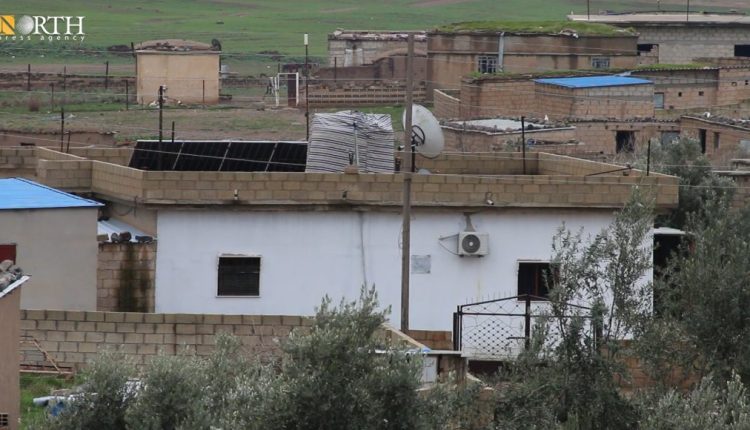Muhammad al-Tallaa decided to purchase solar panels to supply his house with electricity after two weeks of struggling to find alternative solutions to secure water and electricity.
Buying solar panels or home generators was the most suitable option for the residents of the cities of Derik (al-Malikiyah) and Girke Lege, northeast Syria, after lacking electricity and facing a water crisis.
Since the beginning of 2024, areas in northeast Syria have experienced a state of instability due to Turkish airstrikes that targeted 89 sites in the first half of January with 122 strikes, including 62 of them by drones and 22 by warplanes.
The Turkish airstrikes focuses on service facilities as well as posts and checkpoints of the Internal Security Forces of North and East Syria (Asayish) in addition to four security and military sites affiliated with the Syrian government forces.
In previous years, residents of those areas were accustomed to almost constant access to water and electricity, as energy sources including oil facilities and wells were nearby. They did not use to obtain home generators or alternative sources.
“After the recent Turkish airstrikes, all power networks and water facilities were damaged, and we lived days without water and electricity,” al-Tallaa, a resident of the countryside of Girke Lege, told North Press.
So, the optimal solution for al-Tallaa was to purchase solar panels, despite their high costs and the inability of all residents to afford them.
Al-Tallaa noted that the salary of each employee is approximately $100, while the lowest price for solar panels is $1800. This means that the employee needs to work for about two years to buy them and supply his home with electricity.
The option of purchasing a home power generator depends on the residents’ ability to secure some fuel which its sources were also targeted in the recent Turkish attacks, according to al-Tallaa.
Some residents believe that buying a home generator is hugely expensive, considering the large quantity of fuel consumed by generators.
Luqman Ramadan, a resident of the village of Semalka/Faysh Khabur, northeast Syria, bargains the prices of solar panels after suffering from high costs of oil for his power generator.
Ramadan believes that installing solar panels is the optimal solution for illuminating houses for 24 hours a day and utilizing electricity for all household matters.
Ali Ibrahim, an owner of a solar panels center, noticed that there is an increase in purchasing solar panels by the region’s residents following the recent Turkish airstrikes on fuel facilities and oil wells.
In an interview with North Press, Ibrahim highlighted that solar power has emerged as an alternative solution for running water networks and providing lighting, making residents’ lives easier. This has become necessary due to the challenges in securing diesel or gasoline.

